
Kwakwani: A Hidden Gem in the Heart of Guyana
Nestled on the banks of the Berbice River, Kwakwani is a small town that offers a unique blend of natural beauty and rich cultural heritage. This charming town is surrounded by lush rainforests, pristine rivers, and a diverse range of wildlife, making it an ideal destination for nature lovers and adventure seekers alike. The serene atmosphere and warm hospitality of the local residents provide a perfect escape from the hustle and bustle of city life. Kwakwani's main attraction is its proximity to the stunning rainforest, where visitors can explore dense jungles, discover hidden waterfalls, and observe exotic animals in their natural habitat. The town is also known for its vibrant community life, with local markets, festivals, and traditional music adding to the cultural tapestry. Whether you're interested in kayaking down the Berbice River, hiking through uncharted trails, or simply relaxing in a hammock while listening to the sounds of nature, Kwakwani has something for everyone. The town's rich history is deeply intertwined with the indigenous Amerindian culture, which is evident in the local crafts, cuisine, and folklore. Visitors can learn about traditional practices and beliefs by engaging with the community and participating in cultural activities. Kwakwani's unique blend of natural wonders and cultural experiences makes it a must-visit destination for those looking to explore the less-trodden paths of Guyana.
Local tips in Kwakwani
- Visit during the dry season (August to November) for the best weather conditions.
- Bring insect repellent and long-sleeved clothing to protect against mosquitoes.
- Hire a local guide for jungle treks to ensure safety and get the most out of your experience.
- Try the local cuisine, especially dishes made with cassava and fresh river fish.
- Respect local customs and traditions, and always ask for permission before taking photos of people.
Kwakwani: A Hidden Gem in the Heart of Guyana
Nestled on the banks of the Berbice River, Kwakwani is a small town that offers a unique blend of natural beauty and rich cultural heritage. This charming town is surrounded by lush rainforests, pristine rivers, and a diverse range of wildlife, making it an ideal destination for nature lovers and adventure seekers alike. The serene atmosphere and warm hospitality of the local residents provide a perfect escape from the hustle and bustle of city life. Kwakwani's main attraction is its proximity to the stunning rainforest, where visitors can explore dense jungles, discover hidden waterfalls, and observe exotic animals in their natural habitat. The town is also known for its vibrant community life, with local markets, festivals, and traditional music adding to the cultural tapestry. Whether you're interested in kayaking down the Berbice River, hiking through uncharted trails, or simply relaxing in a hammock while listening to the sounds of nature, Kwakwani has something for everyone. The town's rich history is deeply intertwined with the indigenous Amerindian culture, which is evident in the local crafts, cuisine, and folklore. Visitors can learn about traditional practices and beliefs by engaging with the community and participating in cultural activities. Kwakwani's unique blend of natural wonders and cultural experiences makes it a must-visit destination for those looking to explore the less-trodden paths of Guyana.
When is the best time to go to Kwakwani?
Essential places to dine
Big B's Baksh Restaurant (Halall) - Rosignol
Experience authentic Halal cuisine at Big B's Baksh Restaurant in Rosignol – where every dish tells a story of flavor.
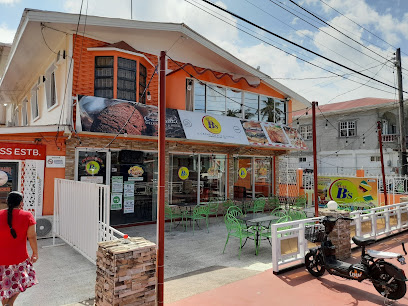
Tropical Reflections
Discover Tropical Reflections in Linden - where vibrant flavors meet warm hospitality in a charming tropical setting.
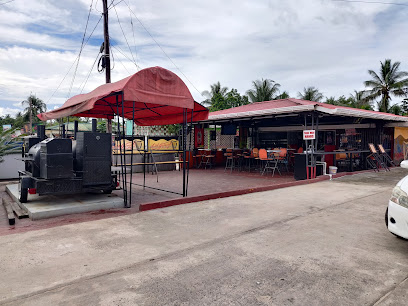
Faheeda's Restaurant
Discover authentic Guyanese cuisine at Faheeda's Restaurant in Skeldon - where every dish is a taste of culture.
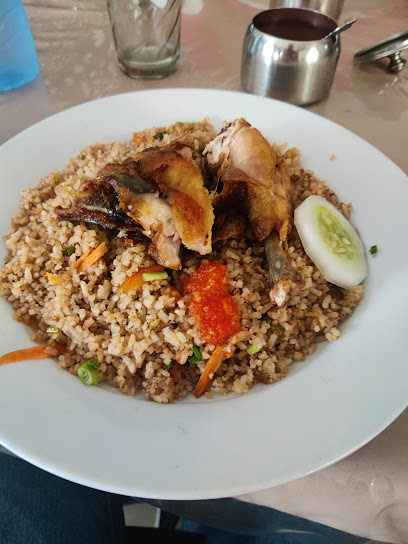
La Grill Hotel, Restaurant & Bar
Discover the authentic flavors of Guyana at La Grill Hotel, Restaurant & Bar - where culinary excellence meets warm hospitality.
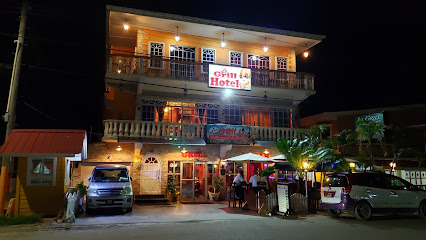
Golden Taste Seafood & Bar
Discover fresh seafood delights at Golden Taste Seafood & Bar in Linden – where local flavors meet fast food convenience.
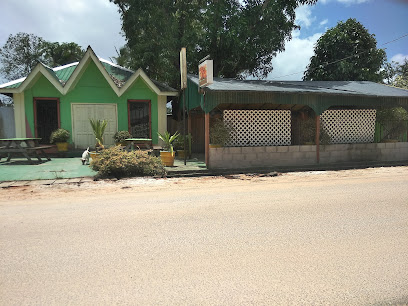
La Caribe Diner
Discover delicious Caribbean flavors at La Caribe Diner in New Amsterdam - where every dish tells a story.
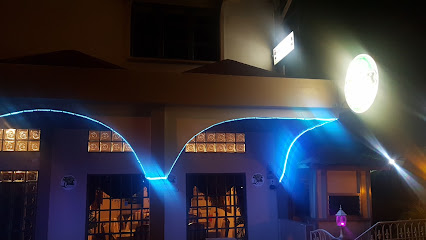
New Louckey Chinese Restaurant
Discover authentic Chinese flavors at New Louckey Chinese Restaurant in Non-Pariel - where tradition meets affordability.
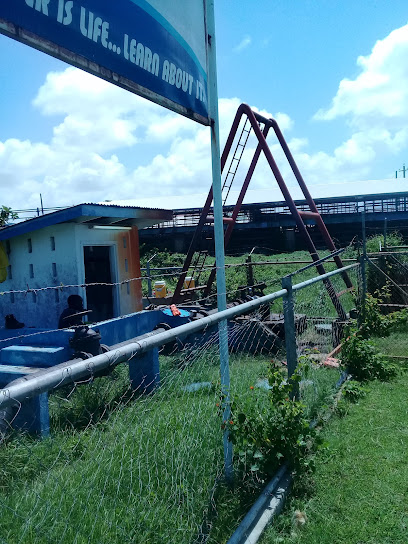
Canje Bistro and Lounge
Discover the vibrant flavors and inviting atmosphere at Canje Bistro and Lounge in Linden's Wismar area.
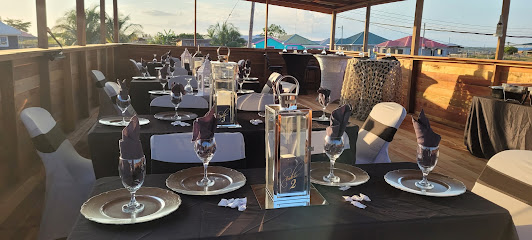
CARIBBEAN CUISINE RESTAURANT & COCKTAIL BAR
Savor authentic Caribbean cuisine and vibrant cocktails at this must-visit restaurant in Berbice.
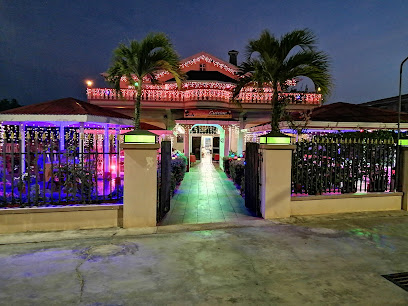
Munchies
Discover the flavors of Corriverton at Munchies - where local meets international in a delightful dining experience.
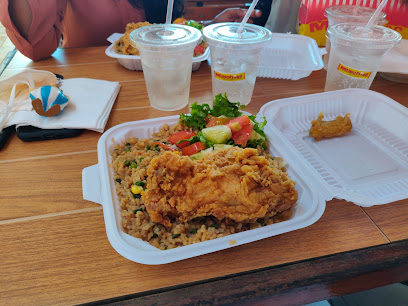
Caliente Spot
Savor authentic Guyanese cuisine at Caliente Spot in Corentyne - where every dish tells a story!
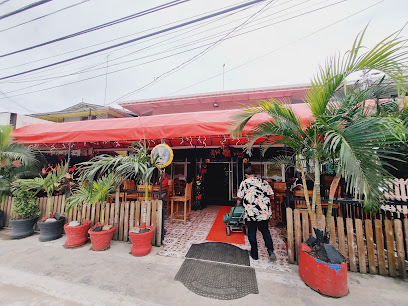
TasteDis catering
Experience authentic local flavors at TasteDis Catering in Linden – perfect for takeout and enjoying delicious meals on-the-go.
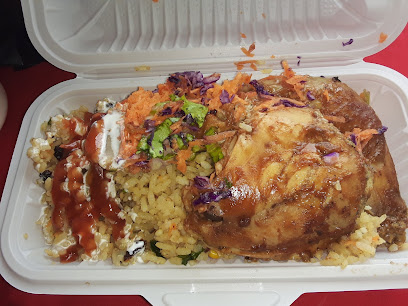
Kwakwani Central Park
Experience serenity at Kwakwani Central Park – your peaceful retreat in Guyana with lush gardens and delightful cafes.
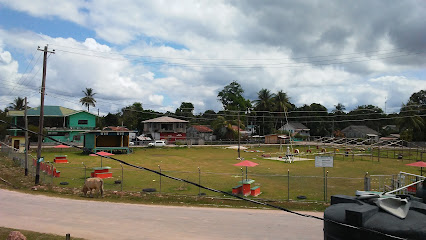
Arvin's Restaurant and Bar
Discover the vibrant culinary scene at Arvin's Restaurant and Bar in Vreed en Hoop—where grilling meets local flavors.

M & D Travellers Resturant and Bar
Savor delicious local cuisine at M & D Travellers Restaurant and Bar in Pubu – a must-visit for food lovers exploring Guyana.
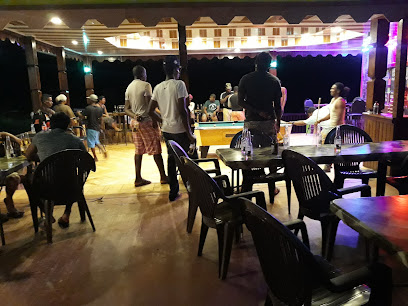
Markets, malls and hidden boutiques
Vishnu Shop
Explore the bustling Vishnu Shop in Corentyne, a vibrant supermarket offering a rich variety of local and international goods for all your travel needs.
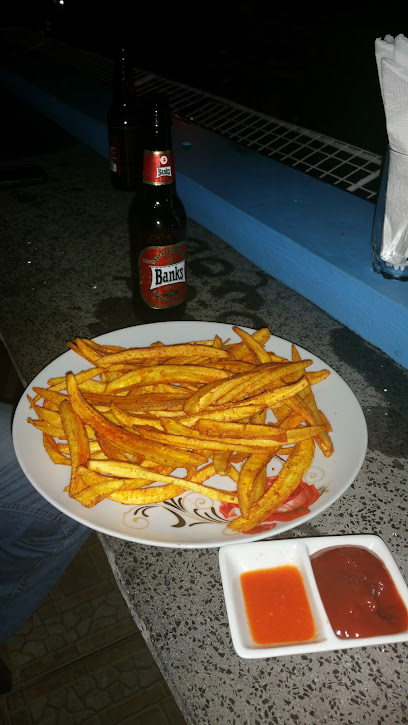
Venu Shopping Centre
Explore Venu Shopping Centre in Skeldon for a diverse selection of beauty products, perfumes, and health supplements at great prices.
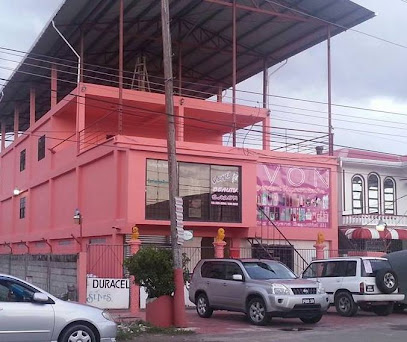
Unique Styles
Explore Unique Styles in New Amsterdam - Your destination for fashionable clothing and practical shelving solutions.
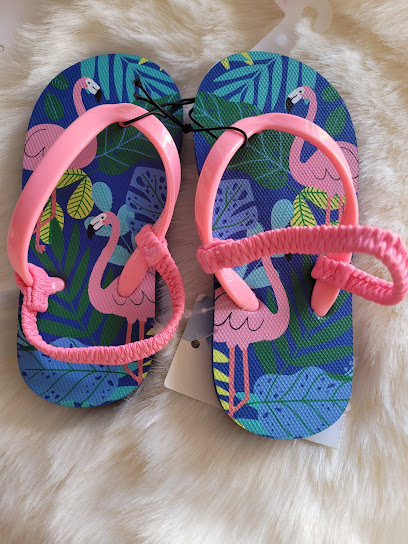
Lake's Shopping Centre
Explore Lake's Shopping Centre in Linden for a unique blend of groceries, convenience items, and local flavors in a friendly shopping environment.
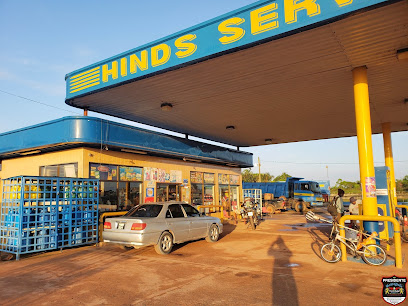
Tina grocery store
Explore the flavors of Corriverton at Tina Grocery Store, where local goods meet authentic Guyanese hospitality.

Keri & Family Variety Store
Experience local culture at Keri & Family Variety Store, the ultimate convenience shop in Linden, offering essentials, snacks, and souvenirs.

Matty mini mall
Experience the local flavors and vibrant culture at Matty Mini Mall, your ultimate grocery destination in Linden, Guyana.
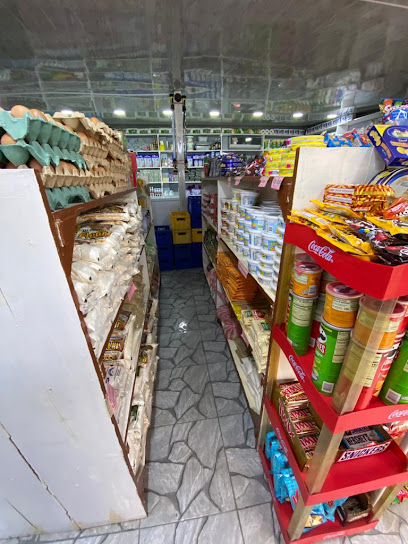
Travis’ Corner Shop
Discover the local charm at Travis’ Corner Shop in Linden, where convenience meets Guyanese culture and community in every visit.

Sarah & Daughter's Boutique
Explore unique fashion at Sarah & Daughter's Boutique in Corriverton, where local style and quality meet for a memorable shopping experience.
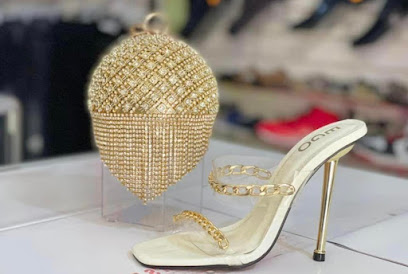
Jermaine's Boutique
Explore Jermaine's Boutique in Skeldon for unique clothing that reflects local culture and style, perfect for fashion enthusiasts and souvenir seekers.

Modest Gems
Explore Modest Gems in Linden for a unique clothing experience that blends local style with contemporary fashion.

The House of UniqueGuy Merchandise
Explore The House of UniqueGuy Merchandise for unique gifts and local crafts that capture the essence of your travels.
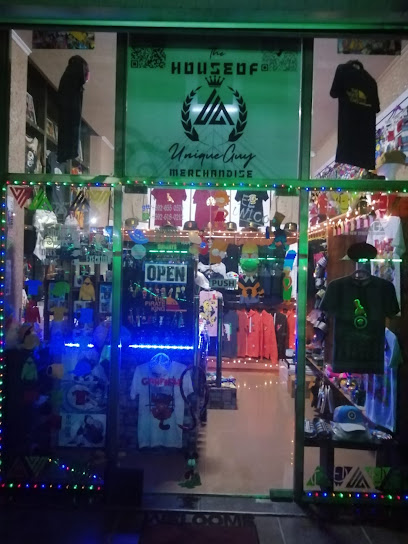
Beauty Supplies and Accessories
Explore Linden's Beauty Supplies and Accessories for unique clothing and stylish finds that celebrate local culture and contemporary fashion.
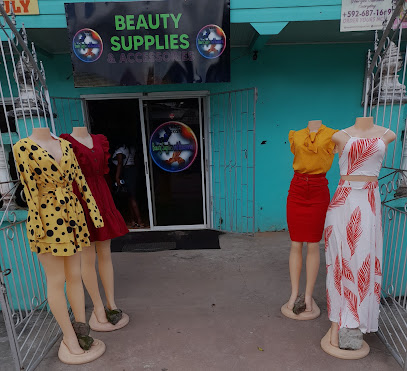
Romen & Daughters Variety Store
Explore Romen & Daughters Variety Store in Skeldon for unique clothing that reflects the vibrant culture of Guyana and perfect souvenirs.

Vijay's convince store an mini mart
Explore local culture and flavors at Vijay's Convenience Store and Mini Mart in Corriverton, your one-stop shop for snacks and souvenirs.
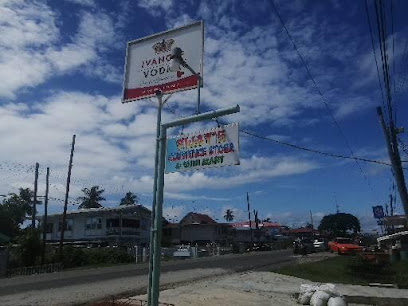
Essential bars & hidden hideouts
Kwakwani Guest House & Bar
Experience the charm of Kwakwani at Kwakwani Guest House & Bar, your cozy retreat in the heart of Guyana's vibrant culture.
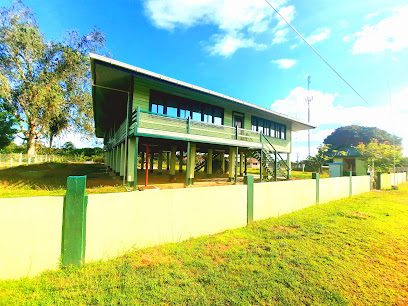
Seas N Breeze Bar + Lounge
Discover the serene ambiance and refreshing drinks at Seas N Breeze Bar + Lounge in Berbice, a perfect retreat for travelers.

River view Bar&Play Park
Experience relaxation and fun at River View Bar & Play Park in Kwakwani, where scenic views and a vibrant atmosphere await every visitor.
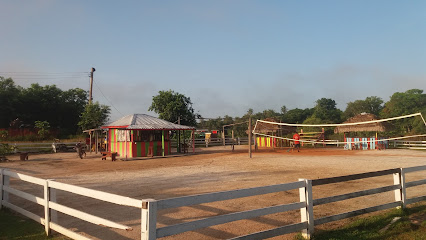
Nexus Sports Bar & Grill
Experience the excitement of sports and delicious dining at Nexus Sports Bar & Grill in Kwakwani, where every game is a celebration.
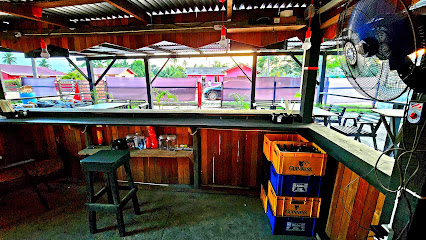
River View Bar & Playground
Discover the natural beauty and vibrant culture at River View Bar & Playground, a family-friendly retreat along the Berbice River.
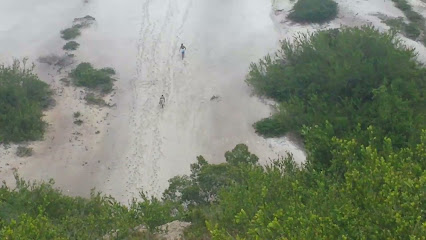
Local Phrases
-
- HelloWatai
[wa-tai] - GoodbyeLaitu
[la-i-tu] - YesHe
[he] - NoNa
[na] - Please/You're welcomeBina
[bi-na] - Thank youMawara
[ma-wa-ra] - Excuse me/SorrySari
[sa-ri] - How are you?Owa yu?
[o-wa yu] - Fine. And you?Sabi. An yu?
[sa-bi. an yu] - Do you speak English?Yu taak Inglish?
[yu taak in-glish] - I don't understandMi na sabi
[mi na sa-bi]
- HelloWatai
-
- I'd like to see the menu, pleaseMi wud laik fi si di minyu, pliiz
[mi wud laik fi si di mi-nyu, pliiz] - I don't eat meatMi na it mit
[mi na it mit] - Cheers!Chiyaz!
[chi-yaz] - I would like to pay, pleaseMi wud laik fi pie, pliiz
[mi wud laik fi pie, pliiz]
- I'd like to see the menu, pleaseMi wud laik fi si di minyu, pliiz
-
- Help!Hep!
[hep] - Go away!Go aweh!
[go a-weh] - Call the Police!Kaal de Polis!
[kaal de po-lis] - Call a doctor!Kaal a dokta!
[kaal a dok-ta] - I'm lostMi los
[mi los] - I'm illMi sik
[mi sik]
- Help!Hep!
-
- I'd like to buy...Mi wud laik fi bai...
[mi wud laik fi bai] - I'm just lookingMi jas lukin
[mi jas lu-kin] - How much is it?Haamoch it de?
[haa-moch it de] - That's too expensiveDa tu ekspensiv
[da tu ek-spen-siv] - Can you lower the price?Yu kaan lara de prais?
[yu kaan la-ra de prais]
- I'd like to buy...Mi wud laik fi bai...
-
- What time is it?Wa taam it de?
[wa taam it de] - It's one o'clockIt wan a klaak
[it wan a klaak] - Half past (10)Aaf paas (10)
[aaf paas (10)] - MorningMaanin
[maa-nin] - AfternoonAftanun
[af-ta-nun] - EveningIivnin
[ii-vnin] - YesterdayYiistideh
[yiis-ti-deh] - TodayTudeh
[tu-deh] - TomorrowTomaro
[to-ma-ro] - 1Wan
[wan] - 2Tu
[tu] - 3Trii
[tri-i] - 4Fo
[fo] - 5Faiv
[fai-v] - 6Siks
[siks] - 7Seven
[sev-en] - 8Eit
[eit] - 9Nain
[nain] - 10Ten
[ten]
- What time is it?Wa taam it de?
-
- Where's a/the...?Weh de...
[weh de] - What's the address?Wat de adres?
[wat de ad-res] - Can you show me (on the map)?Yu kaan shuo mi (on de map)?
[yu kaan shuo mi (on de map)] - When's the next (bus)?Wen de neks (bus)?
[wen de neks (bus)] - A ticket (to ....)A tiket (tu ....)
[a ti-ket (tu ....)]
- Where's a/the...?Weh de...
History of Kwakwani
-
Kwakwani, located in the Upper Demerara-Berbice region of Guyana, has its origins deeply rooted in the indigenous Amerindian tribes, particularly the Arawak and Carib peoples. These early inhabitants utilized the rich natural resources of the area, relying on the Berbice River for fishing and transportation.
-
During the colonial era, the region around Kwakwani saw an influx of European settlers, primarily focused on exploiting the natural resources. The establishment of plantations and the introduction of African slaves significantly altered the demographic and cultural landscape. The economy during this period was predominantly agrarian, with a focus on sugar and other cash crops.
-
Kwakwani experienced significant changes in the 20th century with the discovery and subsequent mining of bauxite. The town became a critical hub for the bauxite industry, attracting workers from various parts of Guyana and even from other countries. This period marked a transformation in the town’s infrastructure, with the construction of housing, schools, and other essential services to accommodate the growing population.
-
With the bauxite industry flourishing, Kwakwani saw the development of key infrastructures such as the Kwakwani Airstrip, enhancing connectivity with other regions. The construction of the Berbice River Bridge also played a pivotal role in facilitating trade and movement, further integrating Kwakwani into the national economy.
-
Kwakwani’s cultural fabric is a vibrant tapestry woven from its diverse population. The influx of workers during the bauxite boom brought together various ethnic groups, including Afro-Guyanese, Indo-Guyanese, and indigenous Amerindians. This diversity is reflected in the town’s cultural festivals, culinary traditions, and communal activities, fostering a unique sense of community.
-
In recent years, Kwakwani has been at the forefront of environmental conservation efforts in Guyana. Recognizing the importance of preserving its rich biodiversity, local and international organizations have collaborated on various projects aimed at sustainable development and protecting the natural habitats around the Berbice River.
-
Kwakwani, like many towns dependent on a single industry, has faced economic challenges as the global demand for bauxite fluctuates. Despite these challenges, the community has shown remarkable resilience by diversifying its economy, promoting tourism, and investing in education and vocational training to equip the younger generation with skills for the future.
Kwakwani Essentials
-
Kwakwani is located in the Upper Demerara-Berbice region of Guyana. The nearest major city is Linden. From Georgetown, the capital of Guyana, you can take a minibus or hire a private taxi to Linden, which is about 107 kilometers away. From Linden, you can proceed to Kwakwani either by road or by river. The road journey from Linden to Kwakwani can be challenging due to rough terrain and is best undertaken in a 4x4 vehicle. Alternatively, you can travel by river using a boat service from Linden to Kwakwani, which offers a scenic and relatively smoother journey.
-
Once in Kwakwani, transportation options are limited. The community is relatively small, and many places can be reached on foot or by bicycle. For longer distances within the area, you can hire local taxis or use minibuses. It's a good idea to arrange your transportation in advance, especially if you plan to visit remote areas. Boat services are also available for traveling along the Berbice River, which can be an interesting way to explore the surrounding areas.
-
The official currency in Guyana is the Guyanese Dollar (GYD). While some businesses in Kwakwani may accept credit cards, it is advisable to carry cash, as smaller establishments and vendors may not have card payment facilities. ATMs are scarce in Kwakwani, so it's best to withdraw sufficient cash in Georgetown or Linden before traveling. Ensure you have enough local currency for your daily expenses and any unforeseen costs.
-
Kwakwani is generally a safe destination for tourists, but it's important to take standard precautions. Avoid walking alone at night and keep an eye on your belongings in public places. There are no specific high-crime areas targeting tourists, but being vigilant and aware of your surroundings is always advisable. It's also wise to stay informed about any local advisories or safety updates during your visit.
-
In case of an emergency, dial 911 for immediate assistance. Kwakwani has a local police station and medical facilities, though they may have limited capabilities. It is highly recommended to have travel insurance that covers medical emergencies and evacuation. For minor health issues, local pharmacies can provide over-the-counter medications. For more serious medical needs, you may need to travel to Linden or Georgetown.
-
Fashion: Do dress modestly, especially in public spaces and when visiting local communities. Avoid wearing overly revealing clothing. Religion: Do respect local customs and traditions. While Kwakwani is not particularly known for religious sites, showing respect in any place of worship is important. Public Transport: Do be respectful and courteous to fellow passengers. Don't expect strict adherence to schedules, as local transport can be irregular. Greetings: Do greet people with a friendly 'good morning' or 'good afternoon.' A handshake is also a common greeting. Eating & Drinking: Do try local dishes and accept food offerings graciously. Don't refuse hospitality, as it is considered impolite.
-
To experience Kwakwani like a local, engage with the community and participate in local events or gatherings. Visit the local markets to buy fresh produce and handmade crafts. Interact with residents, who are often friendly and willing to share stories about their lives and the area's history. Don't miss exploring the Berbice River, which offers beautiful scenery and opportunities for fishing or boating. Additionally, consider volunteering with local initiatives to give back to the community and gain a deeper understanding of life in Kwakwani.
Nearby Cities to Kwakwani
-
Things To Do in Ituni
-
Things To Do in Linden
-
Things To Do in Skeldon
-
Things To Do in New Amsterdam
-
Things To Do in Bartica
-
Things To Do in Anna Regina
-
Things To Do in Lethem
-
Things To Do in Kamarang
-
Things To Do in Lelydorp
-
Things To Do in Paramaribo
-
Things To Do in Mariënburg
-
Things To Do in Brokopondo
-
Things To Do in Moengo
-
Things To Do in Albina
-
Things To Do in Princes Town




